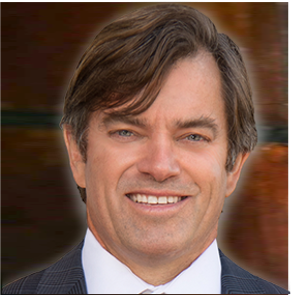
It’s not as if we needed another cautionary tale about good intentions colliding with unbridled greed. This time it is about the federal government’s multi-billion-dollar Paycheck Protection Program (PPP) and emergency lending from the Small Business Administration (SBA). PPP offers 1% loans meant to cover operating expenses, such as payroll, rent, and utilities, and is subject to forgiveness. Economic Injury Disaster Loans (EIDL) cover similar expenses but a company may not double dip by securing funds for the same expenses as covered by the company’s PPP loan.
Designed to assist Americans and businesses suffering economically during the pandemic, some have seen it as a piñata stuffed with cash. And the sticks have been swinging.
Last year the House Select Subcommittee on the Coronavirus Crisis said there was more than $4 billion in possible PPP fraud. As of last month, the SBA said it had referred to its Office of Inspector General 1.34 million suspicious loans and advances borrowed from the EIDL program, in addition to numerous claims of identity theft. In a typical year referrals tally up to only a fraction of these figures. According to analysis released by the subcommittee and reported by CNN, the total amount of fraudulent loans has hit a jaw-dropping $84 billion. Much of the fraudulent lending, which has fueled claims of mismanagement by the Trump administration, went to applicants with duplicate contact information and bank accounts, CNN reported, adding that less than 1% of the defrauded funds has been recovered.
So far the Department of Justice has charged nearly 250 individuals. In November 2020 it indicted four individuals in a Los Angeles fraud ring, charging them with filing 35 fraudulent loan applications for nearly $6 million. In August 2020, the DOJ indicted five business owners in a $4.1 million scheme in which they lied about the number of employees, payroll, and when the businesses were formed. Federal agents seized $3.1 million plus high-end Mercedes-Benz and Range Rover vehicles. In January the DOJ announced its first fraud settlement with a company and its CEO, who had to pay $100,000 and return the funds. More recently the government caught fraudsters at a beauty salon supply company who tried to get relief funds for all the “farmers” on staff – a red flag if there ever was one.
Different flavors of fraud.
As with any fraud, criminals are exploiting weaknesses in the system and the naivete or desperation of individuals. When Covid-19 struck and the economy went into a tailspin the government had to act quickly. As a result the program wasn’t crafted with the robust vetting processes that more time would have allowed. When PPP was rolled out it didn’t require applicants to demonstrate need; they were simply asked how many employees they had and when their entity was formed – an attempt to stop people from quickly starting businesses for the sole purpose of getting loans. There were caps on how much a company could receive per employee, but the process was simple in order to get fast relief to small companies.
The fraudulent conduct is simple; you merely make up the number of employees, overstate payroll, inflate revenues and projections, forge documents, and even fabricate companies. While convicted felons are not eligible, it’s likely some found a way around that – drug dealers, for example. One case that started as a federal investigation into heroin and methamphetamine trafficking led to the indictments of seven individuals in September 2020 who, in addition to drug-related and money laundering crimes, defrauded the PPP of nearly $400,000. The government seized more than $2.1 million in assets in the mixed-crime case. Frauds may be otherwise outstanding citizens with no criminal history, but see the relief programs as a way to make money for their struggling businesses. In some cases they buy luxury cars, homes, and boats. Others have a criminal history and find PPP loans easy money.
Types of cases.
Cases fall into at least the following categories:
False applications. Individuals or entities make false statements to federally insured financial institutions when completing applications.
Inflated payroll. An employee of a company, who is legitimately entitled to funds, discovers that their employer inflated their salary on the application. An employee who makes $50,000 may benefit from that amount, then realize the employer put them down for twice the sum and pocketed the difference.
False formations. Entities have been formed just for the purpose of receiving loans. To be eligible they cannot have more than 500 employees and must have been operational before Feb. 15, 2020.
Fraudulent assistance. Entities are formed for the purpose of helping companies or individuals get PPP loans but do so fraudulently. They might be paid by the number of loans they are able to execute, so racking up loans is their objective. Much of this flavor of fraud will come to light when the borrowers apply for forgiveness. In the case of fraudulent brokers, what victims should know is that the system may not be entirely fair to them. Once caught, brokers will attempt to strike deals to reduce their sentences by turning over evidence of the people they coaxed into providing false information.
Preying on the less sophisticated. Innocent people – maybe younger people or the elderly – are being preyed upon via email or phone calls. They may offer to get an individual relief funds and ask for 25% of a loan as their fee (which is illegal). They might even ask for the payment up front (also illegal). In the process they collect personal data which opens an individual up to additional risk. The perpetrators will make loan applications but load them with false information. The individual will get their loan, less 25%, but become a victim of identity theft only to later realize they were unwitting participants in fraud. Phishing and ransomware are also being deployed.
Whistleblowers. These programs are designed for people who wish to report schemes to defraud the government and share in a portion of the recovery. For example, if someone knows their two-person barber shop just received $6 million in PPP funds, they can participate in a qui tam action under the False Claims Act. It’s important to note that merely reporting fraud via the DOJ Covid-19 hotline doesn’t necessarily qualify the caller as a whistleblower. A whistleblower must navigate a different process which starts with contacting an attorney and notifying law enforcement.
Chasing fraud is an inter-agency endeavor.
Agreements to foster collaboration exist between the U.S. Secret Service, the Internal Revenue Service, the Treasury Inspector General for Tax Administration, the Federal Bureau of Investigation, and the smaller Office of Inspector General for the SBA. In addition to whistleblowers, hotline callers, and frauds uncovered by routine investigations, leads will come from banks who are required to monitor accounts and report suspicious activity. For example, if a company has been dormant for five years and receives $3 million, banks are required to flag that activity. More schemes will be uncovered as general criminal investigations are performed. Those committing routine illegal pre-pandemic schemes, such as bank fraud, wire fraud, embezzlement, or money laundering, will now be scrutinized for PPP fraud.
The sheer number of fraudulent schemes taking place is daunting, but the methods employed by criminals are nothing new for federal prosecutors. The government will prioritize them based on factors such as loan amounts, the nature of the fraud, the strength of the evidence, and the relative ease of securing a conviction. A second wave of bad actors will surface as their original fraud is exposed and/or they commit a second fraud by covering up the first. There will never be a shortage of fraudulent actors, and civil and criminal actions over Covid-19 relief funds are going to be around for the foreseeable future.
David Haas is a federal and state defense attorney. He founded Haas Law, PLLC where he represents clients in federal courts around the country and Florida. He is a former state and federal prosecutor who has extensive jury trial experience, including handling more than 65 jury trials. Learn more at: haaslawpllc.com.
Dan Eckhart is also a federal and state defense attorney, as well as a former federal prosecutor and federal agent. He has represented scores of people around the country charged with money laundering, conspiracy, wire fraud, health care fraud, obstruction of justice, a variety of drug charges, identify theft, and more. Learn more at: daneckhartlaw.com.
Tom Hagy is Editor in Chief of the Journal on Emerging Issues in Litigation, host of the Emerging Litigation Podcast, and founder of HB Litigation Conferences LLC and Custom Legal Content LLC. Learn more at: litigationconferences.com.
This article is based on the March 22, 2021, episode of the Emerging Litigation Podcast.
Interested in having your own Viewpoints article published? Submit your proposal here.
